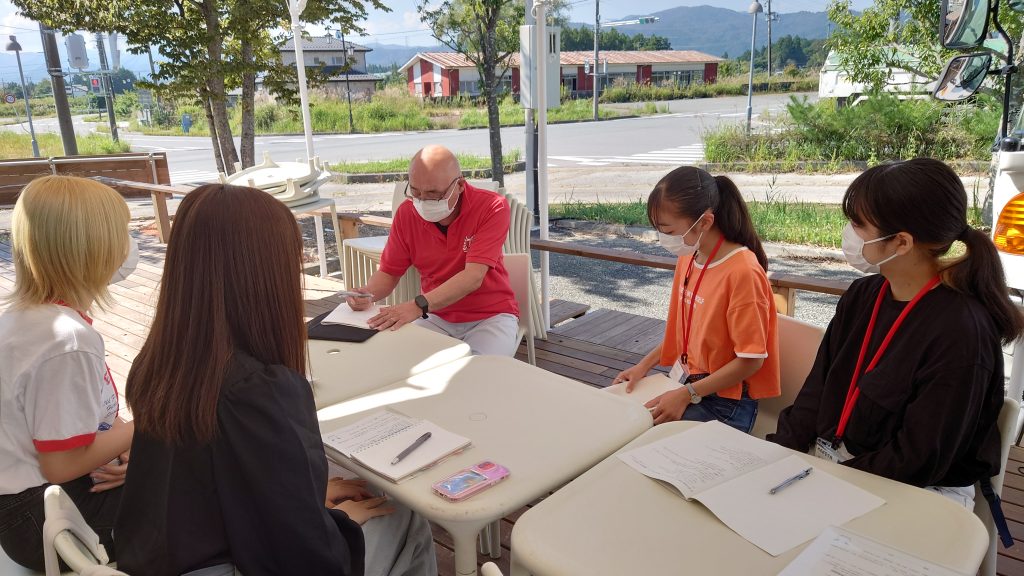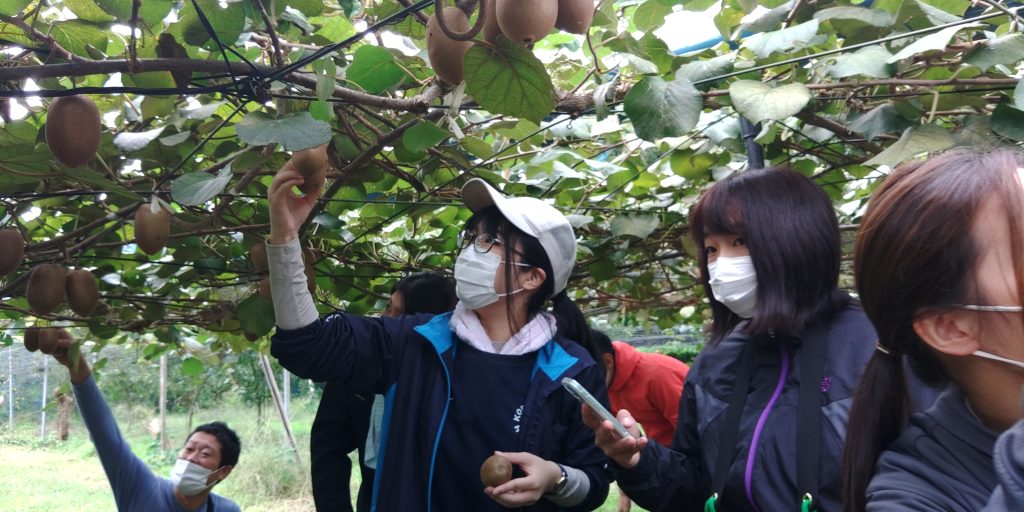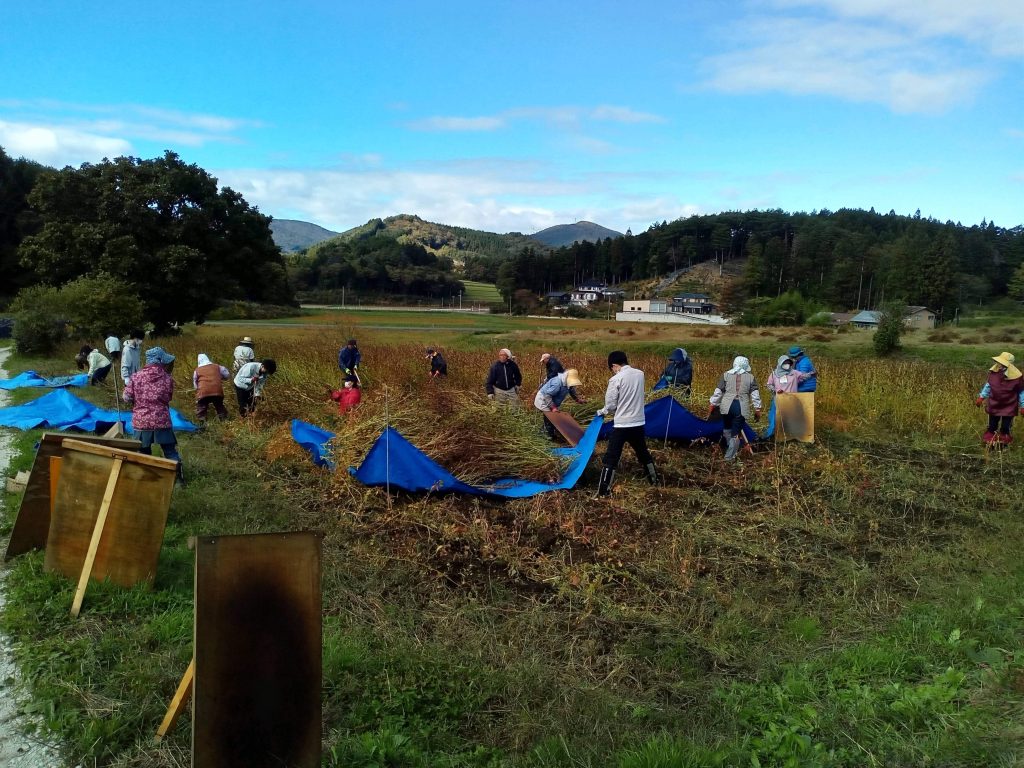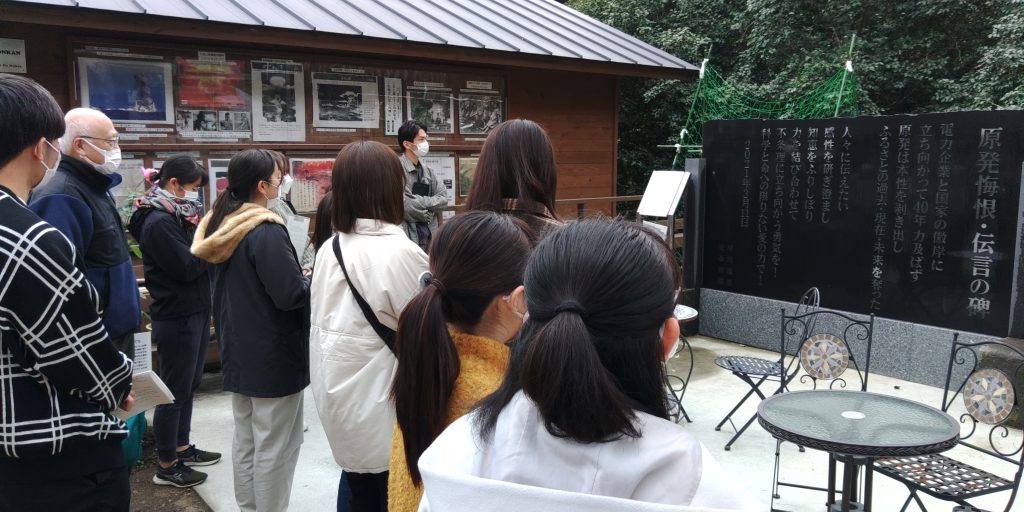Fieldwork studies through multiple visits to revitalization sites
MURA NO DAIGAKU regional practical learning (year one)
In this service-learning course, students make multiple visits throughout the year to regions working on revitalization and redevelopment, which were evacuated after the nuclear accident (the Kawauchi Village and Okuma Town, Futaba District; Odaka Ward, Minamisoma City). They communicate with residents, conduct research (fieldwork), and take part in activities for solving regional issues. Students participate in profound learning from the orientation in May until the onsite report meeting in January.

Utilizing the teachings of MURA NO DAIGAKU
Independent Study Program (year two)
Many of the students who took the MURA NO DAIGAKU course in their first year continue their regional activities (in the Kawauchi Village and Okuma Town, Futaba District, and Odaka Ward, Minamisoma City) by participating in the Independent Study Program during their second year. In this program, students independently form groups and determine their own themes and content to study with guidance from teachers. Many students think about what they can do and continue with independent projects regarding regional challenges discovered in their first year, as well as the appealing features of these regions.
Main activities (past results)
- Support for festivals, meetings, and events; using surveys to analyze visitors
- Working to discover new, appealing features of the Kawauchi Village through research on the natural environment
- Compiling a booklet of interviews with women who work in Odaka, focusing on the young female population
- Mentorship program for regions without universities, creating places for communication
Etc.

Project-based learning spanning multiple faculties
Collaborative Project-based Learning (years three and four)
Fukushima University has five humanities and science faculties on one campus. Taking advantage of this characteristic, Collaborative Project-based Learning (project-based learning spanning multiple faculties) is carried out in the Hamadori(coastal region of Fukushima prefecture) region. Students in these faculties use their specialized skills to conduct service-learning projects.
High-level revitalization human resources are developed with skills such as expertise, the ability to solve regional issues, the ability to collaborate with team members from different specialties, and interdisciplinary qualities.
Main activities (past results)
- Research and analysis on young people’s preferences about living in agricultural regions (Iitate Village, Soma District)
- Survey on declining fertility in agricultural areas after decontamination, considering ways to resolve this (Iitate Village, Soma District)
- Considering how to resume farming in Okuma Town (Okuma Town, Futaba District)
- Agriculture and Sports @ Minamisoma (Minamisoma City)
Etc.

Developing and sharing “Fukushima-type” service-learning
By conducting “Fukushima-type” service-learning and verifying the results of these studies, information is shared so it can be applied to educational practices at institutions of higher education inside and outside of Japan. Students learn through activities to contribute to revitalization and regional redevelopment, including MURA NO DAIGAKU, the Independent Study Program, and Collaborative Project Learning.
Creating a revitalization knowledge database, sharing information with people in Japan and abroad
Fukushima University offers a wide range of classroom courses about the earthquake, nuclear accident, and revitalization. These include Introduction to Fukushima Future Studies I and II, which teach about Fukushima’s current circumstances and future from a multifaceted viewpoint. Based on this, a database of revitalization knowledge classroom materials and videos has been created as an archive (including Introduction to Fukushima Future Studies I and II), of which a portion is made public outside of the university. Proactive efforts are also made to convey this information to other countries.
Learning about the front lines of revitalization through omnibus studies going beyond the humanities and sciences
Fukushima Future Studies I course (all years)
This omnibus course is taught by instructors from all five faculties, leveraging the unique characteristics of this university that works together with the region. Students learn about efforts underway in each academic discipline to solve the challenges in Fukushima that the human race has never before experienced, and about how academic knowledge is utilized as practical knowledge.
Thinking about how to solve problems with guest lecturers who are active in their regions
Fukushima Future Studies II course (all years)
This course invites a broad range of guest lecturers who are actively working for revitalization to teach specifically about the actual initiatives in their regions. With multifaceted themes and viewpoint, it cultivates a problem solving-based way of thinking through encounters with some of these regional redevelopment efforts.
Mirai Bus study tours for regional learning (all years)
Mirai Bus connects the university and regions through day-trip study tours for students, staff, and faculty members. Around 10 tours are held each year to create opportunities to visit regions outside of class. Participants learn about the actual circumstances in each region through volunteering and by visiting and touring disaster-struck areas.
Main destinations (past tours)
- The Great East Japan Earthquake and Nuclear Disaster Memorial Museum (Futaba Town, Futaba District)
- Remains of Ukedo Elementary School (Namie Town, Futaba District)
- Ono Station and nearby town area, interim storage facility (Okuma Town, Futaba District)
Etc.

Collaborating with high schools in the Hamadori(coastal region of Fukushima prefecture) region
Further efforts are made to collaborate with high schools in the Hamadori(coastal region of Fukushima prefecture) region, focusing on guidance for research on challenges at each school and collaborative projects as part of MURA NO DAIGAKU and the Independent Study Program.